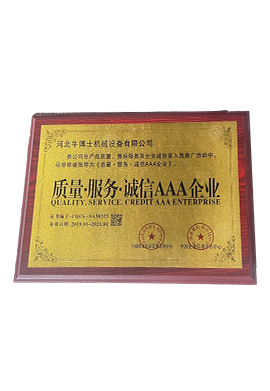Compact Silage Harvester for Efficient Miniature Farming Operations
The Mini Silage Harvester Revolutionizing Forage Production
In the realm of modern agriculture, the importance of efficient forage production cannot be overstated. Silage, a fermented feed made from green foliage crops, plays a crucial role in livestock nutrition, particularly during the off-seasons when fresh forage is scarce. The introduction of mini silage harvesters has significantly transformed the way farmers approach forage harvesting, making the process more efficient, accessible, and environmentally friendly.
Understanding Mini Silage Harvesters
A mini silage harvester is a compact machine designed to cut, chop, and store forage crops like corn, grass, and legumes. Unlike traditional, larger harvesters that require significant investment and large operational spaces, mini harvesters are designed for smaller farms or operations with limited acreage. Their compact size allows for versatility, maneuverability, and ease of use in various terrains, making them suitable for a wide range of agricultural settings.
Key Features and Benefits
One of the standout features of mini silage harvesters is their ability to operate in tighter spaces. Many farms, especially those that are family-run or community-operated, may lack the extensive fields typically associated with large-scale silage production. Mini harvesters' compact design allows them to navigate around obstacles, such as trees or buildings, ensuring that every bit of forage can be harvested without wastage.
Additionally, mini silage harvesters are equipped with advanced cutting mechanisms that ensure a consistent chop length. Properly chopped forage is crucial for efficient fermentation and ensures a higher nutritional value in the silage. The optimization of chop length contributes to better packing density, reducing air pockets within the silage, which can lead to spoilage. With improvements in technology, many mini silage harvesters now come with adjustable cutting settings, allowing farmers to customize the chop length based on their specific needs.
Another significant advantage is the reduced labor and fuel costs associated with using a mini silage harvester. Many small to medium-sized farms often struggle with labor shortages, and the efficiency of a mini harvester means that fewer hands are required for the job. They are generally more fuel-efficient than their larger counterparts, translating into lower operating costs. This efficiency is crucial, especially in an era of rising fuel prices and economic pressures on agricultural production.
mini silage harvester

Environmental Considerations
Beyond their operational benefits, mini silage harvesters also align well with sustainable farming practices. By enabling farmers to harvest forages at optimal times, these machines enhance the quality of the silage produced. Better-quality silage means less feed waste and improved animal health, contributing to a more sustainable livestock operation.
Furthermore, many models of mini harvesters are being designed with eco-friendly technologies that minimize emissions and environmental impact. This push towards greener technology in agriculture is critical as farmers seek to reduce their carbon footprint and comply with stricter environmental regulations.
Economic Impact
The onset of mini silage harvesters has made it possible for smallholder farmers to engage effectively in silage production. Access to such technology can increase yield per acre, improve the quality of livestock feed, and ultimately lead to enhanced profitability. As global demand for livestock products continues to rise, the ability to produce high-quality forage efficiently becomes increasingly essential.
Moreover, with local and regional markets showing a growing interest in sustainable and locally-sourced food products, the role of mini silage harvesters becomes even more significant. Farmers adopting these machines can expect better returns on their investments through improved production practices and higher-quality outputs.
Conclusion
In conclusion, mini silage harvesters represent a game-changing innovation in the agricultural sector, particularly for small to medium-sized operations. By combining efficiency, sustainability, and economic viability, these machines provide farmers with the tools they need to optimize their forage production. As agriculture continues to evolve, the adoption of such technologies will undoubtedly play a crucial role in meeting the world’s growing food demands while ensuring the sustainability of farming practices for generations to come. Embracing the mini silage harvester is not just a step towards increased productivity; it is a commitment to a more sustainable future in agriculture.
Latest news
-
When to Upgrade Your Old Forage HarvesterNewsJun.05,2025
-
One Forage Harvester for All Your NeedsNewsJun.05,2025
-
Mastering the Grass Reaper MachineNewsJun.05,2025
-
How Small Farms Make Full Use of Wheat ReaperNewsJun.05,2025
-
Harvesting Wheat the Easy Way: Use a Mini Tractor ReaperNewsJun.05,2025
-
Growing Demand for the Mini Tractor Reaper in AsiaNewsJun.05,2025







